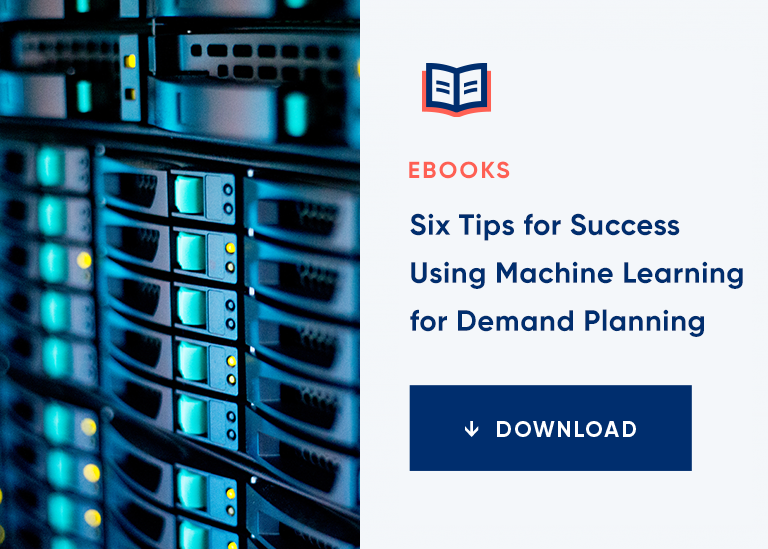
Industry 4.0 is knocking on the door of every logistics business in the world. As a professional, securing your place in any supply chain organization entails developing the supply chain skills needed to ride this global wave into supply chain digital transformation.
As Spinnaker SCS group vice president George Fowler explained in our ‘Be Ready for Anything’ podcast, one of the keys for supply chains to withstand remarkable business disruptions is through implementing strategic digital transformation initiatives. And in order to properly do this, organizations need to be able to leverage business data, which brings us to our first essential digital supply chain skill.
Data Analytics
The field of data analytics encompasses every massive potential supply chain improvement in the wake of Industry 4.0. In a Thomson Reuters study called ‘How Big Data and Data Analytics Will Transform Supply Chains’, experts declare that, “The three biggest benefits for using big data within supply chains are traceability, relationship management (e.g., better customer service), and forecasting/predictability.” Sometimes referred to as ‘the new gold,’ big data can provide supply chains with the necessary foundations for a wide range of long-term improvements. From implementing automation and predictive maintenance measures, to optimizing smart device networks and overall productivity, big data analytics is the key. Currently, both supply chain managers and government customs offices need data scientists who can help untangle the notoriously complex web that is the global supply chain.
Fintech
Today’s emerging financial technologies, or fintech, will determine how the supply chains of the future implement innovative liquidity and financing solutions. While the majority of supply chain finance (SCF) is currently still managed by banks and major financial institutions, fintech providers are disrupting this financial market within the global logistics industry. In the future, SCF will be determined by fintech innovators who can streamline payable services and all transactions for supply chain players.
Sustainability
The days wherein sustainability was considered a buzzword in the global supply chain are long gone. Following the 2016 signing of the Paris Agreement and the implementation of carbon credits across industries, the genuine pursuit toward sustainability has become very important for businesses. In organizations involved with supply chains, greater sustainability also means lowering the total cost of ownership (TOC). This financial estimate is a big-picture look at the direct and indirect costs of certain business decisions. TOC is heavily influenced by ecological economics and social costs. And with the pursuit of sustainability weighing heavily on virtually every industry, supply chain organizations need sustainability experts who can steer their operations in the right direction. Watch our podcast on how supply chain planning supports sustainability efforts.
Soft Skills
For any player in the global supply chain, the path to leveraging analytics and fintech as well as achieving genuine sustainability is through soft skills. In a primer on developing future supply chain professionals, researchers from Gartner identify business acumen, adaptability, political savvy, and the ability to collaborate as keys to improving digital dexterity. This underscores how important it is for digital supply chain organizations to focus on the ‘human’ side of supply chain planning as more of demand forecasting is automated through machine learning. In the coming years, professionals who can communicate business priorities, simplify complex data, and contribute to negotiations will be increasingly valuable in the digitization of the global logistics industry.
How to Learn These Essential Supply Chain Skills
The fastest and most flexible way to attain these skills is through online courses. Empowered by the digital migration, both physical and long-standing web-based universities have programs that can enable professionals to become experts in these essential skills to excel in the supply chain of the future. These are just a few options; we encourage you to check out supply chain courses at your local college or university.
Long-standing online school Maryville University for instance has an extensive advanced course for those looking to master the use of big data for optimization. The online masters in business data analytics program at Maryville University includes practical training in database principles as well as forecasting and predictive modeling. Graduates of this course are expected to land careers as management, operations, research, or market analysts, all of which are highly in-demand in the digital supply chain.
As for those looking to gain practical skills for navigating emerging fintech, Yale University’s prestigious School of Management is also a good choice. The online undergraduate financial markets course at Yale University includes extensive lessons in technology and innovation in finance, as well as risk management methodologies.
Meanwhile, the University of Victoria recently joined the handful of schools around the world offering business and marketing degrees with a focus on environmental and ethical concerns. The online MBA in sustainable innovation at the University of Victoria blends key business skills with social justice and environmental education, a potential breeding ground for tomorrow’s experts in sustainable logistics. Furthermore, this combination of sustainability training and traditional business competence also paves the way for developing practical soft skills in the digital age.
These three schools and courses are just the tip of the iceberg in terms of flexible, web-based, and in-depth training in emerging fintech, data analytics, and enterprise sustainability. The digital coursework offered by any of these classes, courses, and degree programs can provide strong foundations for practicing soft skills in remote work settings as well. Developing these competencies won’t just ensure your place in the global supply chain. Armed with any of these essential skills, you can more actively play a professional role in the massive digital transformation of one of the most essential industries on the planet.
Piece specially written for ToolsGroup.com
Written by: JBrantly


